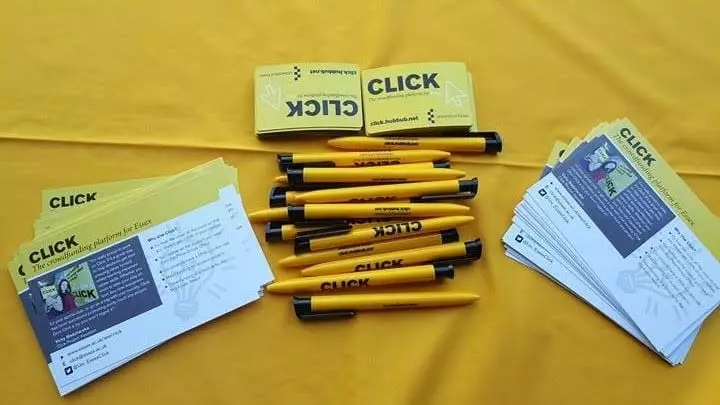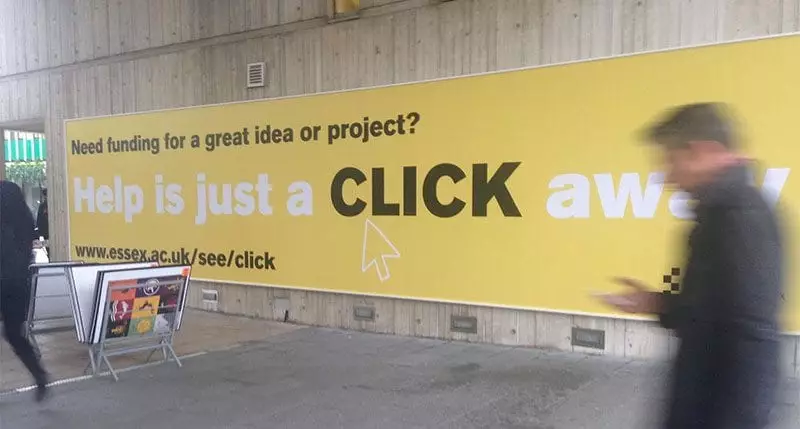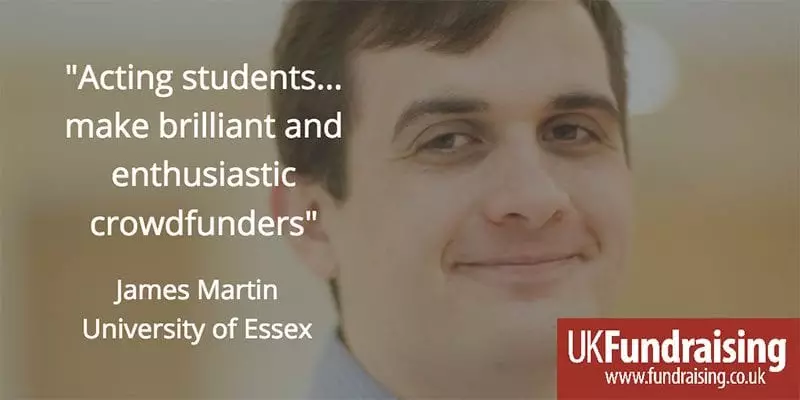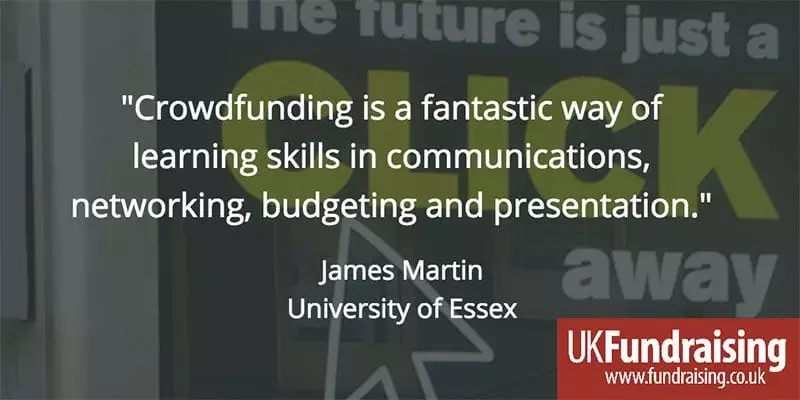Celebrating one year of crowdfunding at the University of Essex
Whilst crowdfunding in itself is nothing new (the people of New York City ‘crowdfunded’ the platform the Statue of Liberty now sits on), offering University students the opportunity to crowdfund for projects and causes important to them is a relatively young but rapidly growing concept. The University of Essex crowdfunding platform, Click, launched a year ago in November, an ideal point for me to reflect a little on our first year in crowdfunding and its impact on our institution.
It was a number of factors coming together that led me to crowdfunding. First, I was aware that students were becoming savvier with both technology and fundraising, and that if I could bring student fundraising under one roof, I could leverage in-house fundraising expertise to help students to make the best of the opportunities crowdfunding presents.
I was also increasingly frustrated with the traditional method of funding student projects – an annual grant application process. The system was too rigid and was leaving students behind. Personally, I find grants applications are never a test of what is a deserving project, but more a test of who can write a good application.
No to spoon fed funding
Simply writing cheques was also not in keeping with the Essex ethos – we tell our students that at Essex they won’t be ‘spoon fed a degree’, so why would we spoon feed funding?
I felt the solution would be the student fundraising for themselves with our support and guidance, and using money raised from graduates as match-funding. Then, the student not only achieves their funding goal, but learns valuable skills in the process, whilst at the same time from a donor’s perspective we can offer a suite of specific projects to suit a number of philanthropic interests. This idea then became ‘Click’, and crowdfunding at Essex was born!
Focus on institutional reach and buy-in
Getting noticed in a University is no easy task. Universities can be a strange hybrid of part small town, part multinational corporation, part Hogwarts – there are lots of people engaging in its community for a variety of reasons, and the competition is fierce in trying to get their attention. From the very beginning our focus was on ensuring maximum reach across our campuses, high brand recognition, and comprehensive institutional buy-in.

Promoting Click at Essex University
Click launched on Tuesday 10 November 2015. The launch event was attended by senior staff and students, including representatives of our nine launch projects. Launching with nine at once was a tremendous challenge, but was important in order to be taken seriously from the start. We put our full effort in our first month ensuring the projects would be successful, success that was crucial in order to build confidence in this new concept.
Advertisement
Eight of the initial nine projects succeeded
In the end, eight projects were successful, raising over £15,000 between them, and we were off and running. We spent the next few months meeting as many groups of students as possible, and heavily promoting the platform across all communication channels. It was important that we were everywhere in the first few months, to encourage students to recognise our brand and build our reputation.
Projects slowly came forward, and the platform momentum started to grow. We are lucky to have an acting school linked to the University, as acting students not only make brilliant and enthusiastic crowdfunders, but are always in need of funding for their next play. The platform allowed the University to send the most plays in its history to the Edinburgh Festival, all of whom crowdfunded to do so.
We also replicated our launch event in June to 350 senior staff and community leaders at the annual Vice-Chancellor’s Summer Reception, further growing our reputation.
This hard work in the early months has meant we are now at the stage where everyone has heard of Click, and projects come to us regularly without needing to be encouraged.
First year of crowdfunding – results
The results of our first year crowdfunding have been remarkable – 98% of projects hitting their targets, higher than the average for educational fundraising, and far exceeding commercial platforms like Kickstarter and Indiegogo. We raised close to £40,000 across 37 projects, amongst the highest figures for university fundraising worldwide. We also nearly quadrupled our donor base, with nearly 800 people donating to crowdfunding projects this year.
Diverse projects supported
One of my proudest achievements with Click has been the diversity in projects supported. From sports clubs needing new kit and equipment, to societies putting on conventions, from students taking plays to the Fringe, to young entrepreneurs starting their first businesses; wherever students needed funding we were there. This is a testament to the time invested in our early days marketing the platform and meeting students: time very well spent.
Students learning new skills
Fundraising aside, we’ve also helped dozens of students learn important life skills. Crowdfunding is a fantastic way of learning skills in communications, networking, budgeting and presentation. From an institutional perspective, it can have a real practical influence on the employability agenda, a key challenge in an ever-increasingly competitive graduate job market. Crowdfunding is doing its part to give our students the best start to their careers.
The future for Click?
What does the future hold for Click in year two? We’ve had a great first year, but have no intention of stopping at that. We plan to diversify our offer to help even more people in our community to realise their dreams – students, staff and alumni. We have set a standard across the education sector as world-leading, and we do not intend to let that slip.
Crowdfunding has been a real revolution at Essex. It’s put us on the map, both on our campus and nationally. We’re so proud to have been able to help so many students this year, and to play our part to promote crowdfunding in the sector. Happy birthday Click!
James Martin is the University of Essex’s Regular & Planned Giving Officer. Over the last four years he has transformed the Regular Giving programme at Essex, including by introducing crowdfunding in 2015.







